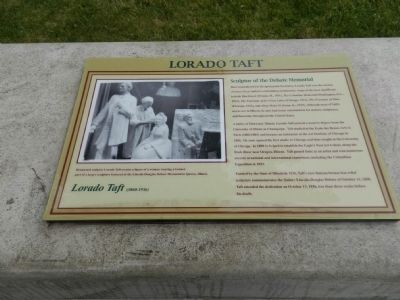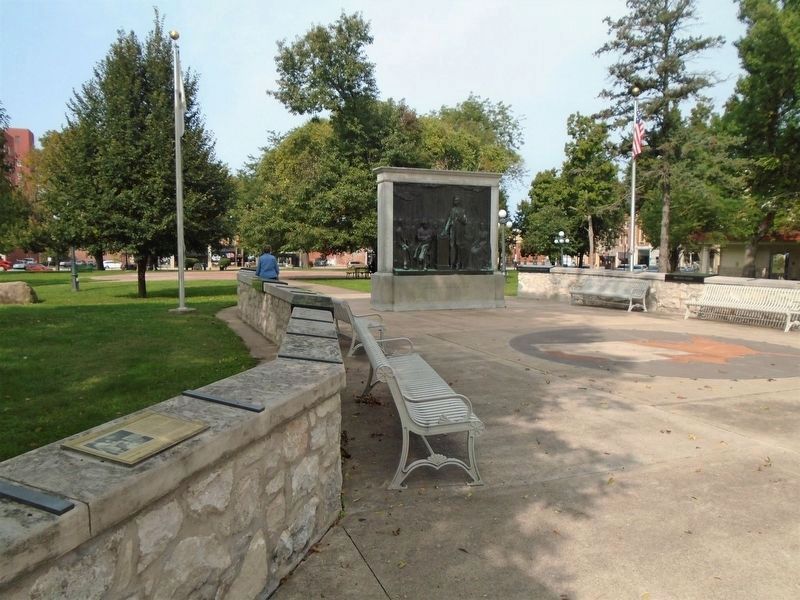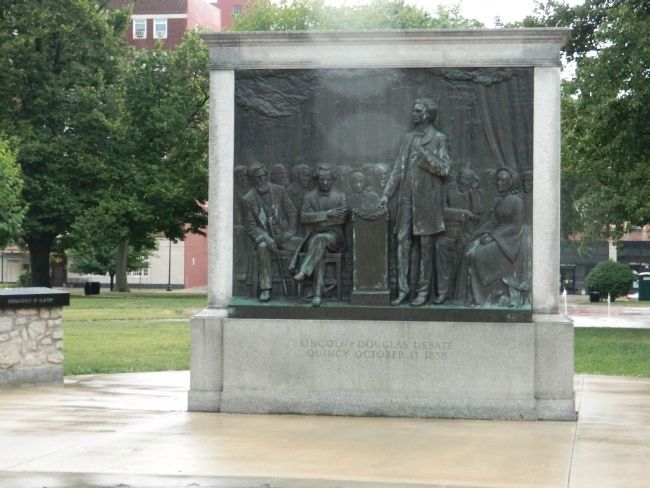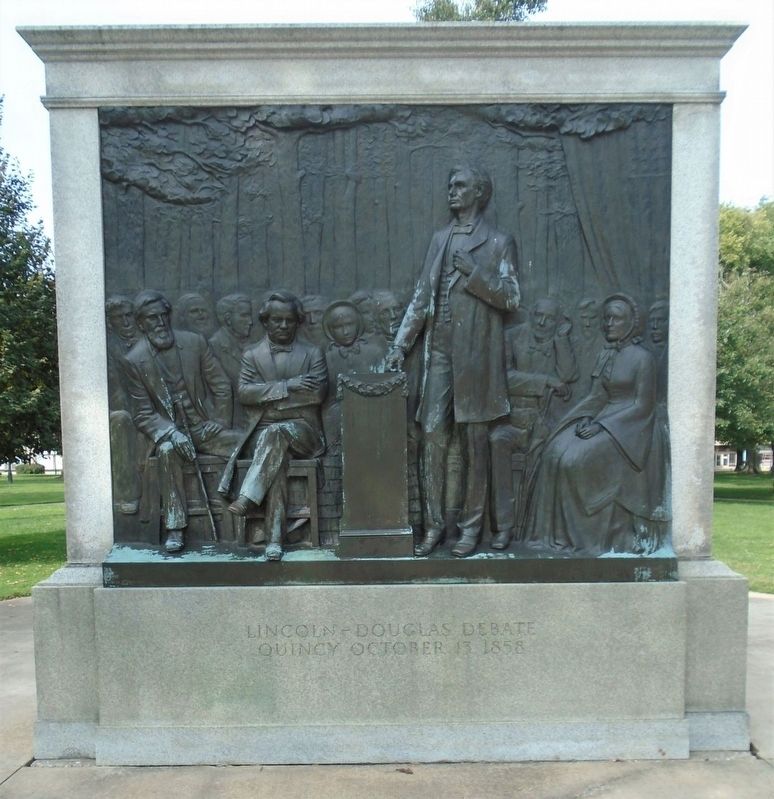Lorado Taft (1860 - 1936)
Sculptor of the Debate Memorial
A native of Elmwood, Illinois, Lorado Taft earned a masters degree from the University of Illinois at Champaign. Taft studied at the Ecole des Beaux-Arts in Paris (1880-1885) and became an instructor at the Art Institute of Chicago in 1886. He soon opened his first studio in Chicago and later taught at the University of Chicago. in 1898 he helped to establish the Eagle's Nest Art Colony along the Rock River near Oregon, Illinois. Taft gained fame as an artist and won numerous awards at national and international expositions, including the Columbian Exposition in 1893.
Funded by the State of Illinois in 1936, Taft's now famous bronze bas-relief sculpture commemorates the Quincy Lincoln-Douglas Debate of October 13, 1858. Taft attended the dedication on October 13, 1936, less than three weeks before his
death.Topics. This historical marker is listed in this topic list: Arts, Letters, Music. A significant historical date for this entry is October 13, 1875.
Location. 39° 55.956′ N, 91° 24.521′ W. Marker is in Quincy, Illinois, in Adams County. Marker is on Hampshire Street. Marker is in Washington Park. Touch for map. Marker is in this post office area: Quincy IL 62301, United States of America. Touch for directions.
Other nearby markers. At least 8 other markers are within walking distance of this marker. Racial Equality (here, next to this marker); Changing Slavery (here, next to this marker); Morality of Slavery (here, next to this marker); Lincoln-Douglas Debate (here, next to this marker); Dred Scott Decision (here, next to this marker); Political Campaigning in 1858 (a few steps from this marker); Permanency of Slavery (a few steps from this marker); Spread of Slavery Into The Territories (a few steps from this marker). Touch for a list and map of all markers in Quincy.
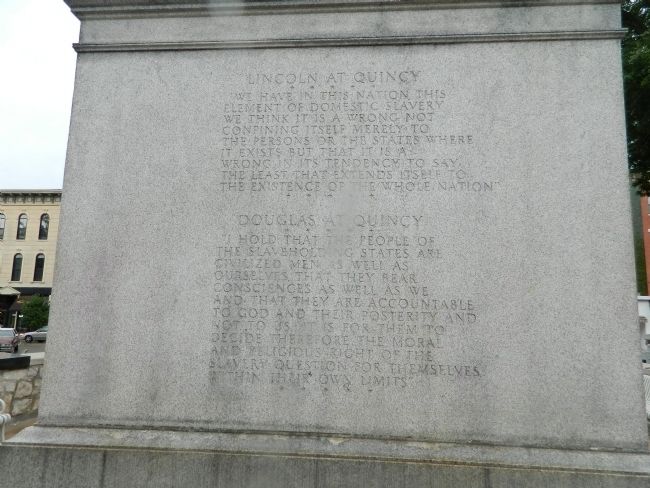
"We have in this nation this element of domestic slavery. We think it is a wrong not confining itself merely to the persons or the States where it exists but that it is a wrong in its tendency to say the least that extends itself to the existence of the whole nation."
Douglas At Quincy
"I hold that the people of the slaveholding states are civilized men as well as ourselves. That they bear consciences as well as we and that they are accountable to God and their posterity and not to us. It is for them to decide therefore the moral and religious right of the slavery question for themselves within their own limits.
Credits. This page was last revised on September 27, 2020. It was originally submitted on August 26, 2012, by Bill Pfingsten of Bel Air, Maryland. This page has been viewed 713 times since then and 29 times this year. Photos: 1. submitted on August 26, 2012, by Bill Pfingsten of Bel Air, Maryland. 2. submitted on September 27, 2020, by William Fischer, Jr. of Scranton, Pennsylvania. 3, 4. submitted on August 26, 2012, by Bill Pfingsten of Bel Air, Maryland. 5. submitted on September 27, 2020, by William Fischer, Jr. of Scranton, Pennsylvania.
